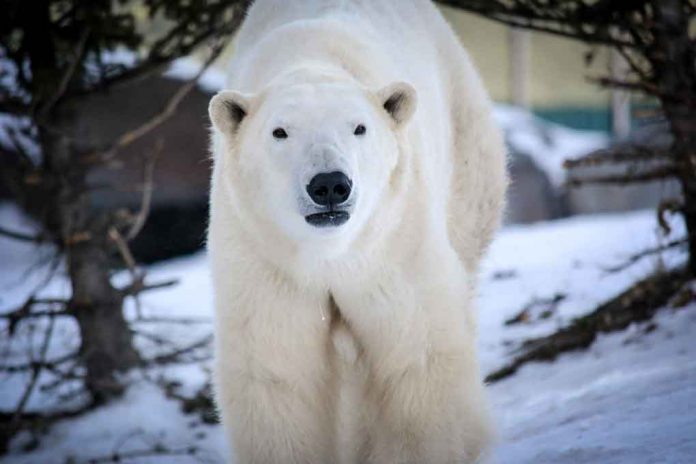WINNIPEG – LIVING – It is with great sadness that the Assiniboine Park Zoo announces that one of its polar bears, Blizzard, passed away yesterday morning. The five-year-old polar bear has lived at the Zoo since September 2014 and will be missed by all staff, volunteers, and visitors who knew him.
Blizzard began exhibiting clinical symptoms, including loss of appetite and lethargic behaviour, leading the veterinary team to make the decision 13 days ago to anesthetize him in order to conduct a full assessment of his condition. He was prescribed oral antibiotics and his progress was monitored carefully. He was doing well until this weekend when his condition appeared to take a turn for the worse. Monday morning, the decision was made to anesthetize him in order to re-assess his condition and take appropriate measures. The procedure went well, but in the course of reversing the anesthesia, Blizzard experienced respiratory distress. Veterinary and animal care staff did absolutely everything they could to save him, but sadly he passed away.
“It is always a sad day when we lose one of the beloved animals at the Zoo, but a loss under these circumstances is particularly challenging. Blizzard was a beautiful bear and he will be dearly missed by Zoo staff, visitors, and volunteers,” said Dr. Chris Enright, Director of Veterinary Services, Assiniboine Park Zoo.
At this time, an investigation into the cause of illness is preliminary. A necropsy (animal autopsy) was conducted Monday evening and preliminary results indicate signs of inflammation, fluid in the chest cavity, and some abnormalities in the heart. Further diagnostics are pending, and we may know more at a future date.
Blizzard and his sister Star were transferred to the Leatherdale International Polar Bear Conservation Centre in September 2014 when they were approximately one year old. The siblings were spotted near a well-known denning area. Despite an extensive search, efforts to find the cubs’ mother was unsuccessful and they were identified by Manitoba Sustainable Development as candidates for the polar bear rescue and transition program. The Cubs’ transfer, care and transition were overseen by members of the Zoo’s research, veterinary, and animal care teams.
Experts agree that polar bear cubs orphaned in their first year of life cannot survive on their own without their mother’s protection and the opportunity to learn critical survival skills. This is based on research and data gathered over decades. Our Zoo offers them a second chance to live a fulfilling life in human care. It is our hope that by seeing and learning from these bears, people will be inspired to make changes in their own lives that can have positive effects on climate change and the future for polar bears in Manitoba.





